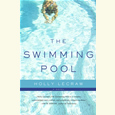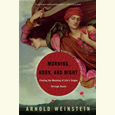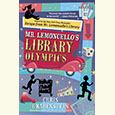A Voice Like Thunder
Beth Bachmann’s latest poetry collection explores the ramifications of war
Nearly two centuries after the first recorded use of the term, “war poet” still defies easy definition. World War I soldiers like Wilfred Owen and Siegfried Sassoon might come to mind first, and Iraq War veteran Brian Turner certainly carries their mantle. But the title can also refer to those who write against conflict, even if they have never experienced battle themselves. It is a fraught laurel, one which Beth Bachmann wears with unflinching honesty and passion. Her latest collection, Do Not Rise, demonstrates the lyric’s ability to transcend its music and offer a haunting perspective on both violence and its aftermath.
 At first glance, these poems seem understated. Their length rarely exceeds ten lines; their titles are brief and lowercase. The setting of the poems, such as it is, appears to be the countryside, yet these are no idylls, untouched by the outside world. The dangerous landscapes require a guide, and the necessary voice emerges early, unafraid of declarations: “Little boy, keep your teeth / in your mouth,” the speaker says, though she isn’t speaking only to children: God, gods, and the devil are all invoked as if to cover the bases—no help will be refused.
At first glance, these poems seem understated. Their length rarely exceeds ten lines; their titles are brief and lowercase. The setting of the poems, such as it is, appears to be the countryside, yet these are no idylls, untouched by the outside world. The dangerous landscapes require a guide, and the necessary voice emerges early, unafraid of declarations: “Little boy, keep your teeth / in your mouth,” the speaker says, though she isn’t speaking only to children: God, gods, and the devil are all invoked as if to cover the bases—no help will be refused.
Bachmann’s website calls Do Not Rise “a new book about war, memory, and PTSD.” Through this lens, the speaker almost seems like a demi-god herself, not all-knowing but not quite human either, hovering over war-torn lands and sliding into the minds of survivors. In the side-by-side poems “shell” and “shock,” it’s unclear who’s declaring that “The dead we burn; the living we bury in our faces,” though the statement itself is above suspicion. This line reflects the blunt tone of all the poems, including “ante–,” which depicts a devastated world where soldiers come to terms with their dead and their own actions:
“God before and god after
we bathed in the same water, you who knows all my secrets,
who killed who and where and why, I said, god
we’re all hungry. You’ve got to eat.”
All four natural elements (water, fire, wind, earth) play their parts in this collection, but water is the most destructive elemental force, the great equalizer. In a poem called, simply, “water,” it splits rocks and uproots houses. In “why your room has a door,” it is a hammer. In “crisis,” the collection’s first poem, it’s terrifying, but it’s also tempting: “The water wants out right there / on the tongue.”
 These poems offer their own updated version of the sublime by evoking nature’s ability to awe. While Bachmann’s vernacular is far from that of a British Romantic, there’s a hint of William Blake in this collection, particularly his poem “Who Can Stand?,” which begins, “O for a voice like thunder, and a tongue / To drown the throat of war!” A fervor for peace cuts through the centuries separating the two poets, but in the end, nature is the antidote to war in Do Not Rise: mud is dressing for a soldier’s wounds; a rock provides a shield from bullets.
These poems offer their own updated version of the sublime by evoking nature’s ability to awe. While Bachmann’s vernacular is far from that of a British Romantic, there’s a hint of William Blake in this collection, particularly his poem “Who Can Stand?,” which begins, “O for a voice like thunder, and a tongue / To drown the throat of war!” A fervor for peace cuts through the centuries separating the two poets, but in the end, nature is the antidote to war in Do Not Rise: mud is dressing for a soldier’s wounds; a rock provides a shield from bullets.
The title of this book comes from John Donne’s poem “Daybreak,” in which a lover wishes for dawn to delay its arrival so that the speaker and his beloved can stay together. This sort of wishful thinking is rarely uttered in Do Not Rise, but the desire for a respite from violence is ever-present. In her notes, Bachmann credits more recent influences, including the U.S. Army Field Manual and Rex Applegate’s Kill or Get Killed. There are also two poems indebted to those World War I scribes Owen and Sassoon. The poet’s awareness of her forebears makes her own originality even more striking.
Just as Bachmann’s previous collection, Temper, redefined the elegy, Do Not Rise reimagines the war poem while acknowledging that atrocities never change: “You can’t have a war // without women,” Bachmann writes. “Where do you think all that blood comes from?” These lines call attention to the poet’s gender, a woman writing in a masculine tradition. Indeed, it is difficult to imagine more vital poems than the ones Bachman writes.

Erica Wright is the author of a new crime novel, The Red Chameleon, as well as two poetry collections. Now a senior editor at Guernica, she grew up in Wartrace, Tennessee, and received her M.F.A. from Columbia University.


